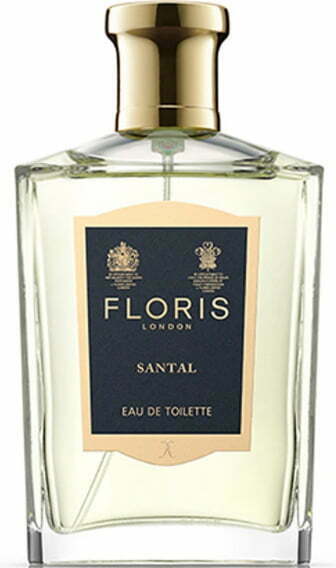PATTY PRAVO

Patty Pravo (born Nicoletta Strambelli on 9 April 1948) is an Italian singer. She debuted in 1966 and remained most successful commercially for the rest of the 1960s and throughout the 1970s. Having suffered a decline in popularity in the following decade, she experienced a career revival in mid-late 1990s and reinstated her position on Italian music charts. Her most popular songs include “La bambola” (1968), “Pazza idea” (1973), “Pensiero stupendo” (1978), and “…E dimmi che non vuoi morire” (1997). She scored fourteen top 10 albums (including three number ones) and twelve top 10 singles (including two number ones) in her native Italy. Pravo participated at the Sanremo Music Festival ten times, most recently in 2019, and has won three critics’ awards. She also performed twelve times at the Festivalbar.
Strambelli was born to parents Aldo Strambelli and Bruna Caporin, and was raised in a liberal fashion at her paternal grandparents’ place. She spent her formative years in Venice where she was acquainted with American poet Ezra Pound and the future Pope John XXIII. She started taking piano, dance and solfège classes from a young age, and entered the Benedetto Marcello Music Conservatory straight into the fourth grade when she was ten.
In 1962, deeply affected by the passing of her grandfather, she left Venice and moved to London to learn English. At the age of seventeen, she moved to Rome where she began her career dancing and singing at the newly opened Piper Club, which earned her the nickname “la ragazza del Piper” (“The Piper Girl”). There is a number of versions as to the origins of her stage name, but most likely, “Patty” came from names of English girls that the singer was dining with on one occasion, and “Pravo” was inspired by the expression “anime prave” (“wicked souls”) from Dante Alghieri’s Divine Comedy.
Having secured a contract with RCA Italiana, Patty released her first single in late 1966, “Ragazzo triste” (English: “Sad Boy”), the Italian version of “But You’re Mine” by Sonny & Cher. Although some of the lyrics caused objections from the national radio network RAI, it would be the first pop song broadcast on Vatican Radio, and reached the top 20 in the sales chart. Pravo scored another top 20 single in 1967, “Se perdo te” (“If I Lose You”), written by English songwriter Paul Korda and originally performed by P. P. Arnold as “The Time Has Come”. She made brief appearances in various Italian films, including Camillo Mastrocinque’s The Most Beautiful Couple in the World and two pictures by Mariano Laurenti, usually performing the popular song “Qui e là” (“Here and There”).
In 1968, she released what would become one of her signature songs, “La bambola” (“The Doll”). It was a number 1 hit in Italy for nine consecutive weeks, and also charted internationally in Europe and South America. The single sold a million copies within months and was later awarded a gold disc. It was followed by a chart-topping self-titled debut album and a no. 2 hit “Sentimento” (“Feeling”). Pravo went on to release two more top 10 hits: “Tripoli 1969” and “Il paradiso” (“Paradise”), the latter performed at Festivalbar. Both were included on her second album, Concerto per Patty (Concert for Patty), which peaked at no. 5. In autumn 1969, she released another top 20 single “Nel giardino dell’amore” (“In the Garden of Love”) which she performed to some success in the variety show Canzonissima.
Pravo took part in the Sanremo Music Festival 1970 with the song “La spada nel cuore” (“A Sword in the Heart”) performed in duet with Little Tony. The song placed fifth in the contest and was a chart success. She then released another album called just Patty Pravo which marked a change of musical direction from beat music towards a more melodic repertoire. The LP reached the top 10 of the Italian chart and included the hit “Per te” (“For You”), and a duet with Robert Charlebois “La solitudine” (“Loneliness”). Pravo found success in France, where she was dubbed “Italian Édith Piaf” for her interpretation of “Non, je ne regrette rien”. She followed it with a music special Bravo Pravo broadcast on French TV on New Year’s Eve 1971. It would also be the title of her new LP. Although it was her lowest-charting album at that point, it spawned the popular Italian version of Jacques Brel’s “Ne me quitte pas”, titled “Non andare via”, and another top 5 hit “Tutt’al più”.
After her contract with RCA had expired, Pravo signed with Philips Records and recorded a trilogy of albums, released in quick successions between 1971 and 1972. They consisted of more sophisticated and complex material. The first one was Di vero in fondo, accompanied by a single with Italian version of “(Where Do I Begin?) Love Story”. Both the album and the single reached the top 10 in Italy. The following two LPs, Per aver visto un uomo piangere e soffrire Dio si trasformò in musica e poesia (To See a Man Cry and Suffer, God Turned Himself into Music and Poetry) and Sì… incoerenza (Yes… Inconsistency), did not fare as well, but still placed within the top 20. In the meantime, Pravo released a standalone single “Non ti bastavo più” (“I Wasn’t Enough to You Anymore”) which reached no. 6.
In 1973, the singer reunited with her former label RCA and released what would become one of the biggest hits of her career, the ballad “Pazza idea” (“Crazy Idea”). It spent two months atop the Italian singles chart, staying consecutively in the top 5 for over four months, eventually selling in over 1,5 million copies. The song’s parent album, also titled Pazza idea, was a number 1 on the Italian sales chart six weeks in a row. Pravo collaborated with the same team of songwriters on her next LP, Mai una signora (Never a Lady), released in 1974. It was another chart-topper, and spawned the popular single “Come un Pierrot” (“Like a Pierrot”) and the Festivalbar song “Quale signora” (“Which Lady”). In 1975, she released Incontro (The Meeting), an album reportedly recorded in only three days. It was a commercial success and reached no. 4 in the sales chart. The title song was performed at the Festivalbar and reached no. 6 in Italy.













